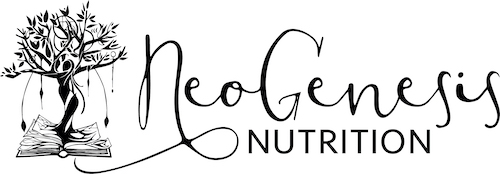The sacred religious male bonding ritual over beer and hot wings is a symbolic interchange of stress management between the males of our species. My husband and his friends especially enjoy this ritual during football season, but it’s never limited to then. So I asked him one evening, why those two foods and what satisfaction does it provide? After taking a moment, and coming up with a better answer than “I don’t know,” he stated that it was a time to relax, unwind and release some stress.
Men carry a great deal of stress and many aren’t wired to verbalize their stresses as women are. So once a week or once a month they get together with other men and eat beer and hot wings, maybe watch a little sports, and then praise each other on becoming masters of their own universe.
It is no easy task to be a man. Men are faced with their own multitude of health problems. Narcotic use, cardiovascular disease, and heart attacks are more common in men. What do these health conditions have in common? Stress! Stress raises the homocysteine levels in the body via oxidative stress. This oxidative stress also increases the risk of smoking, depression and suicide. Oxidative stress comes from the foods we eat, the medications we may take and the environment in which we live. It is inescapable in a sense, but it is definitely possible to reduce it.
While taking away the beer and hot wings isn’t always a possibility, what is possible is giving the men in our lives another way to get together, release stress and better embody a sense of mind-body health. Yoga is often cited as a viable method for reducing the oxidative stress, as well as balancing blood sugars, increasing flexibility and relaxing the mind. Tai Chi has also been utilized and studied. In one sense the consumption of beer and hot wings creates an unseen flow and ebb of comradery and thus, Tai Chi could also create a similar flow and ebb. Meditation increases awareness and relieves stress. A good workout such as rock climbing, walking on the beach or hiking gets the blood pumping, increases awareness of self and nature and provides a sense of renewal and inspiration.
While hot wings has the potential to increase cholesterol levels (depending upon what is in the sauce), meditation has been demonstrated to lower LDL levels. Men typically struggle with higher levels of cholesterol than women so this would be a great adjunctive therapy. Meditation increases the antioxidant absorption in the body, thus reducing the destructive effects of the free radicals and oxidative stress.
One positive aspect of the beer and hot wings phenomenon is that beer, during the fermentation process, generates high levels of melatonin. Melatonin is best known as a sleep hormone, but this beautiful chemical that is produced in the pineal gland does oh so much more! Melatonin helps to regulate blood sugar, reduce oxidative stress, potentially remold bone and prevent osteoporosis, and reduce NAFLD (Non-alcoholic fatty liver disease).
So, Gentlemen, enjoy a beer and then get outside to relax while you take a hike! J (No pun intended, naturally!)
Agil, A., Rosado, I., Ruiz, R., Figueroa, A., Zen, N., & Fernández‐Vázquez, G. (2012). Melatonin improves glucose homeostasis in young Zucker diabetic fatty rats. Journal of pineal research, 52(2), 203-210.
Gordon, L. A., Morrison, E. Y., McGrowder, D. A., Young, R., Fraser, Y. T., Zamora, E. M., … & Irving, R. R. (2008). Effect of exercise therapy on lipid profile and oxidative stress indicators in patients with type 2 diabetes. BMC complementary and alternative medicine, 8(1), 21.
Hatzis, G., Ziakas, P., Kavantzas, N., Triantafyllou, A., Sigalas, P., Andreadou, I., … & Sigala, F. (2013). Melatonin attenuates high fat diet-induced fatty liver disease in rats. World Journal of Hepatology, 5(4), 160.
Liu, J., Huang, F., & He, H. W. (2013). Melatonin Effects on Hard Tissues: Bone and Tooth. International Journal of Molecular Sciences, 14(5), 10063-10074.
Mahagita, C. (2010). Roles of meditation on alleviation of oxidative stress and improvement of antioxidant system. Journal of the Medical Association of Thailand= Chotmaihet thangphaet, 93, S242.
Nedeljkovic, M., Ausfeld-Hafter, B., Streitberger, K., Seiler, R., & Wirtz, P. H. (2012). Taiji practice attenuates psychobiological stress reactivity–A randomized controlled trial in healthy subjects. Psychoneuroendocrinology, 37(8), 1171-1180.
Sanna, L., Stuart, A. L., Pasco, J. A., Kotowicz, M. A., Berk, M., Girardi, P., … & Williams, L. J. (2013). Physical comorbidities in men with mood and anxiety disorders: a population-based study. BMC medicine, 11(1), 110.
Schneider, R. H., Nidich, S. I., Salerno, J. W., Sharma, H. M., Robinson, C. E., Nidich, R. J., & Alexander, C. N. (1998). Lower lipid peroxide levels in practitioners of the Transcendental Meditation program. Psychosomatic Medicine, 60(1), 38-41.
Vargas, H. O., Nunes, S. O. V., Castro, M. R. P. D., Vargas, M. M., Barbosa, D. S., Bortolasci, C. C., … & Berk, M. (2013). Oxidative stress and inflammatory markers are associated with depression and nicotine dependence. Neuroscience letters.
Yadav, R. K., Magan, D., Mehta, N., Sharma, R., & Mahapatra, S. C. (2012). Efficacy of a short-term yoga-based lifestyle intervention in reducing stress and inflammation: preliminary results. The Journal of Alternative and Complementary Medicine, 18(7), 662-667.
Zanuto, R., Siqueira‐Filho, M. A., Caperuto, L. C., Bacurau, R. F., Hirata, E., Peliciari‐Garcia, R. A., … & Carvalho, C. R. (2013). Melatonin improves insulin sensitivity independently of weight loss in old obese rats. Journal of pineal research.

